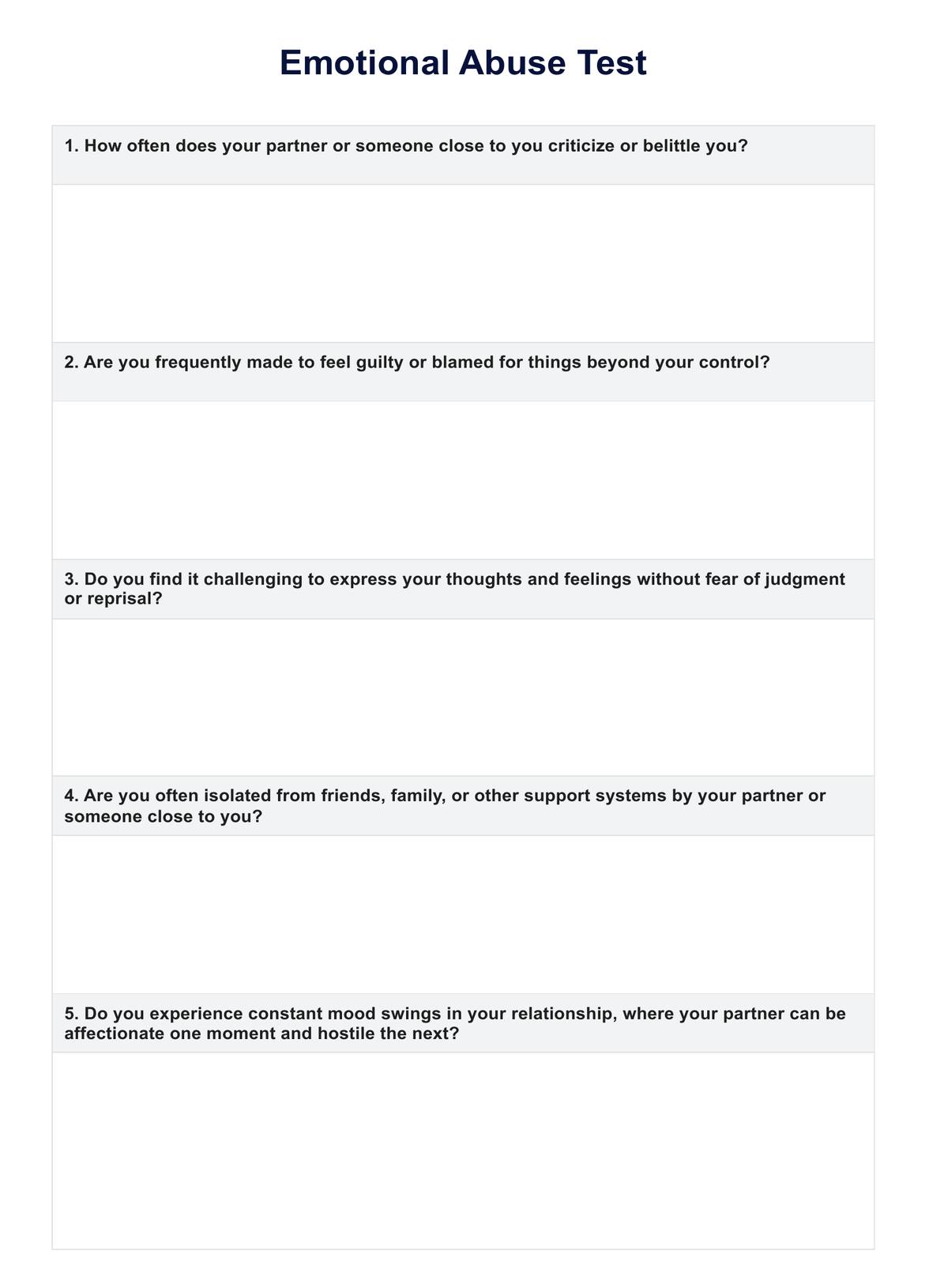It helps gauge the presence of various behaviors used to control and manipulate someone emotionally, like insults, blame, or isolation.

Emotional Abuse Test
Gain insights into your emotional well-being with our Emotional Abuse Test. Identify potential signs of emotional abuse and prioritize your mental health.
Use Template
Emotional Abuse Test Template
Commonly asked questions
No, they are self-assessment guides, offering a preliminary indication, not a definitive diagnosis. Seek professional help for a thorough evaluation.
Not necessarily. High scores warrant reflection and exploration, but other factors like stress or unhealthy communication styles could also play a role.
EHR and practice management software
Get started for free
*No credit card required
Free
$0/usd
Unlimited clients
Telehealth
1GB of storage
Client portal text
Automated billing and online payments











